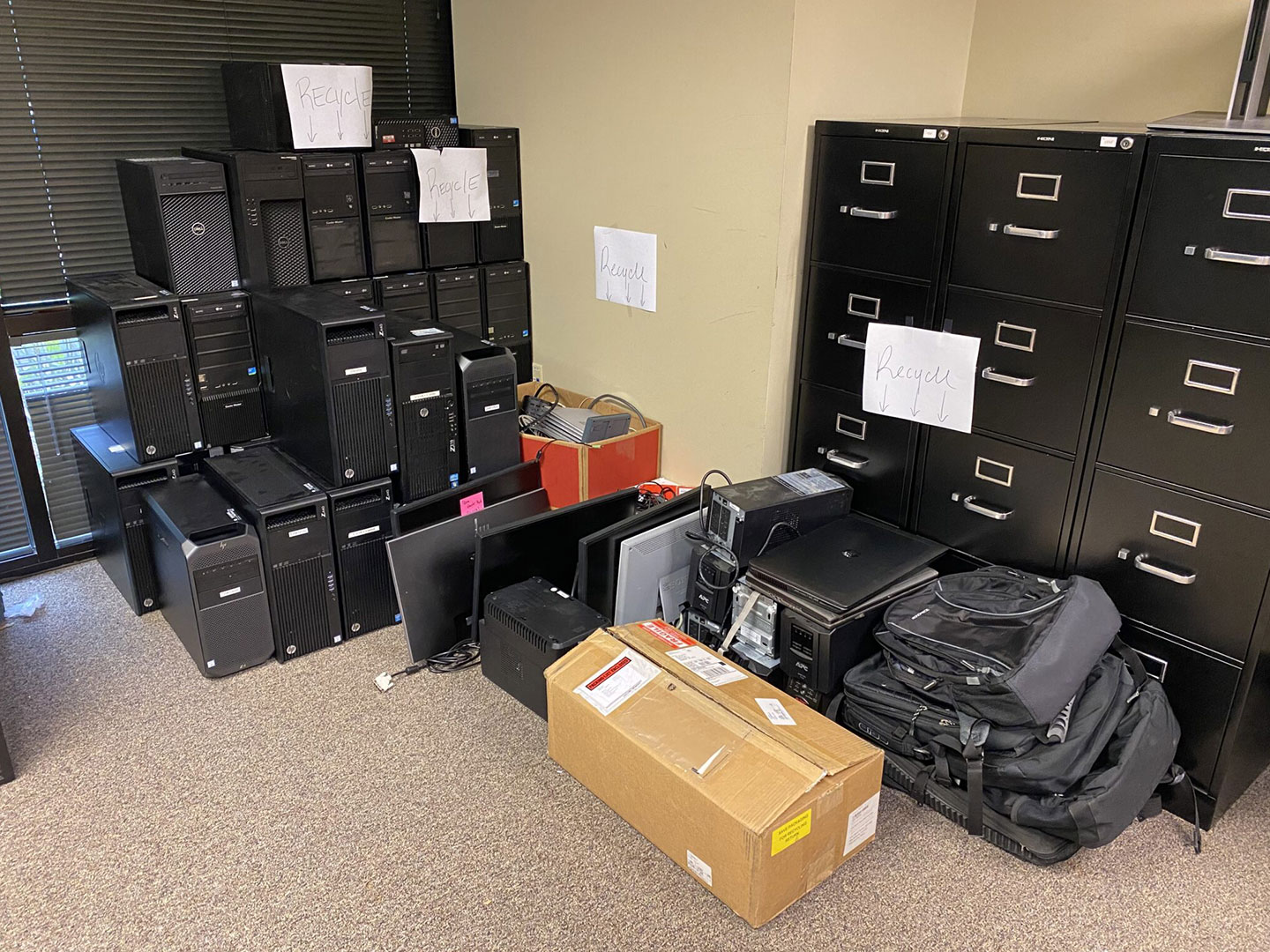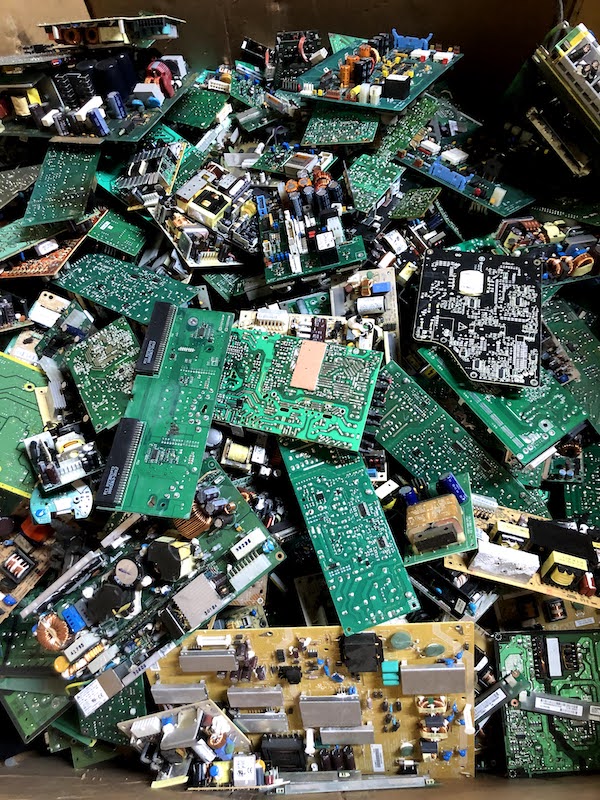Secure Disposal: The ABCs of Computer Recycling
Lasting IT Solutions: Trustworthy Computer System Recycling Services
As innovation proceeds to progress at a rapid pace, the problem of digital waste, or e-waste, has actually become a pressing worry for both organizations and individuals alike. The incorrect disposal of computer systems and various other electronic devices not only contributes to ecological destruction, but also positions substantial threats to human wellness. Because of this, the need for credible computer recycling services has never been even more paramount. In this discussion, we will explore the environmental effect of e-waste, the benefits of accountable computer recycling, how to choose a credible recycling service, the recycling process for computers and digital tools, and the duty of federal government regulations in e-waste management. Join us as we uncover the lasting IT remedies that can aid us browse the intricacies of electronic waste in a trustworthy and accountable manner.
The Ecological Influence of E-Waste
The improper disposal of electronic waste, typically known as e-waste, has considerable environmental effects. E-waste describes disposed of digital gadgets such as computer systems, televisions, and smartphones (computer recycling). These devices have dangerous products such as lead, mercury, cadmium, and brominated flame resistants, which can be dangerous to both human health and wellness and the environment otherwise properly taken care of
When e-waste is incorrectly taken care of, it commonly winds up in garbage dumps or is blazed, releasing hazardous materials into the soil, air, and water. The launch of these harmful products can contaminate groundwater, pollute the air, and add to dirt degradation, posturing serious health and wellness threats to nearby neighborhoods and ecological communities.
In addition, the improper disposal of e-waste also adds to the exhaustion of all-natural sources. computer recycling. If effectively reused, many electronic gadgets consist of beneficial steels like gold, silver, and copper that can be recouped and recycled. When e-waste is not recycled, these useful resources are shed, and the need for brand-new raw materials boosts, leading to enhanced mining activities and more ecological destruction.
To mitigate the environmental influence of e-waste, correct recycling and disposal approaches have to be used. This includes the accountable collection, dismantling, and recycling of electronic tools to recoup useful materials and guarantee the safe monitoring of unsafe materials. Carrying out efficient e-waste management techniques is important to secure the atmosphere, conserve sources, and promote a sustainable future.

Benefits of Responsible Computer System Recycling
Correctly recycling computer systems provides a wide range of benefits, including environmental conservation and resource preservation. Accountable computer system recycling not just assists avoid digital waste from finishing up in landfills, yet it likewise decreases the requirement for raw products and energy in the manufacturing of new tools.
One of one of the most considerable benefits of accountable computer recycling is the conservation of the environment. When electronic waste is poorly disposed of, it can release unsafe compounds such as lead, mercury, and cadmium right into the soil and water, posturing a risk to ecosystems and human health and wellness. By reusing computers, these unsafe materials can be securely removed and gotten rid of, decreasing the danger of air pollution.
Another advantage is source preservation. Computers include beneficial materials like gold, silver, copper, and light weight aluminum, which can be recuperated and recycled via reusing processes. By drawing out and recycling these products, the demand for extracting brand-new resources is decreased, saving all-natural resources and reducing the environmental effect of source removal.
Furthermore, responsible computer recycling assists to minimize power intake. Production brand-new computer systems requires a significant amount of energy, from the extraction of raw materials to the assembly process. By recycling computer systems and recycling their parts, the energy-intensive production procedure can be stayed clear of, causing a decrease in greenhouse gas exhausts and an extra lasting usage of energy resources.
How to Choose a Trustworthy Computer Recycling Solution
When picking a computer system reusing solution, it is crucial to take into consideration a couple of crucial factors to guarantee that you pick a trustworthy and trustworthy provider. Information protection is a critical problem when recycling computers, as delicate details kept on old devices can be vulnerable to burglary or abuse. By considering these factors, you can pick a computer system recycling service that is moral, trustworthy, and ecologically responsible.
The Recycling Refine for Computers and Electronic Instruments
To make sure responsible disposal and decrease ecological impact, recognizing the recycling procedure for computer systems and electronic tools is necessary when choosing a trustworthy recycling reference solution. The recycling check out this site procedure for these gadgets usually includes several phases.
First of all, the devices are gathered from people, organizations, or drop-off points. This collection procedure may entail transportation logistics and protected handling to shield the sensitive data consisted of within the gadgets. As soon as gathered, the tools are sorted based upon their kind, such as laptop computers, smartphones, or desktop computers.
After arranging, the devices go through a detailed data damage procedure to guarantee that any type of sensitive or individual details is permanently removed. This action is essential to secure the privacy and protection of organizations and people. Information devastation methods may include wiping, degaussing, or physical damage of the storage space media.
Following, the tools are dismantled right into their individual components. This enables for the splitting up of various products, such as plastics, steels, and circuit boards. These materials are then sent out to specialized recycling centers for further handling.
The recycling facilities make use of various methods to remove valuable materials from the digital waste. These products can be recycled or repurposed in the production of new items. The continuing to be waste is thrown away in an eco liable way, sticking to regulative guidelines.
The Role of Government Regulations in E-Waste Management
Federal government laws play an essential role in the effective monitoring of e-waste. With the continual development of the electronic devices market and the enhancing worry for ecological sustainability, the requirement for appropriate disposal and recycling of electronic waste has actually come to be much more obvious. Government regulations aid to make certain that e-waste is handled in a lasting and accountable fashion.
Among the main roles of federal government policies is to establish requirements and guidelines for e-waste monitoring. These regulations specify the proper approaches for collection, transportation, and recycling of electronic waste. By developing these standards, federal governments can make certain that e-waste is dealt with in a manner that decreases its effect on the environment and human health and wellness.
Government guidelines also play a critical function in enforcing the appropriate disposal of digital waste. They need suppliers and sellers to take duty for the products they sell and create. This consists of executing take-back programs, where suppliers are responsible for gathering and reusing electronic waste from consumers. These guidelines aid to shift the problem of e-waste management from the private customer to the sector, ensuring that electronic waste is handled in an extra sustainable manner.

Final Thought
Finally, it is critical to consider the environmental effect of e-waste and pick a reliable computer reusing solution to sensibly dispose of electronic devices. By following government regulations and participating in correct reusing procedures, we can alleviate the unfavorable impacts of e-waste on the atmosphere and promote a more lasting future.
In this conversation, we will certainly explore the environmental impact of e-waste, the benefits of liable computer recycling, how to choose a reliable recycling solution, the reusing procedure for computers and electronic tools, and the duty of government regulations in e-waste monitoring. Computer systems consist of important materials like gold, copper, silver, and aluminum, which can be recouped and reused through reusing processes.Furthermore, liable computer reusing assists to decrease power usage. Data protection is a crucial problem when recycling computers, as delicate information saved on old gadgets can be vulnerable to burglary or misuse. By taking into consideration these aspects, you can choose a computer system recycling solution that is ethical, trusted, and ecologically responsible.